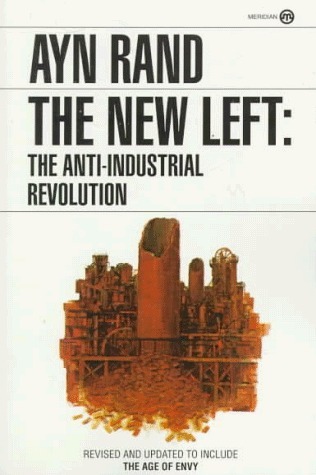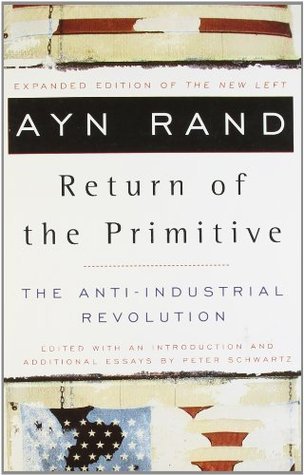
The New Left: The Anti-Industrial Revolution
Book Description
A storm brews on the horizon as the ideals of freedom clash with the looming shadows of collectivism in "The New Left: The Anti-Industrial Revolution." Ayn Rand boldly exposes the rising tide of anti-industrial sentiment, unraveling a narrative where innovation faces relentless opposition. Each chapter brims with urgent truths and piercing insights, challenging the very foundations of liberty and prosperity. As society teeters on the precipice of a new dark age, the battle for individual rights ignites fierce debates and moral dilemmas. Can the relentless pursuit of progress survive in a world that seeks to dismantle it?
Quick Book Summary
"The New Left: The Anti-Industrial Revolution" by Ayn Rand is a provocative collection of essays that critically examines the cultural and philosophical underpinnings of the New Left movement of the 1960s and 1970s. Rand argues that the New Left, with its anti-capitalist, anti-industrial, and often anti-reason stance, threatens the very foundations that support freedom, prosperity, and technological progress. She contends that the movement targets individualism and rational thought, promoting instead a form of collectivism reminiscent of past totalitarian ideologies. Through a series of essays, Rand warns that if unchecked, the New Left's influence could lead to a regression into a new era of irrationality and loss of liberty. Ultimately, the book serves as a passionate defense of reason, individual rights, and the achievements of the Industrial Revolution.
Summary of Key Ideas
Table of Contents
The moral defense of individualism and rational thought
Ayn Rand opens her critique by contextualizing the rise of the New Left within a broader philosophical conflict between reason and irrationality. She argues that the New Left represents a radical departure from the Enlightenment principles that fueled the Industrial Revolution, notably reason, science, and respect for individual rights. Instead, Rand sees the movement as advocating a return to mysticism and collectivism, which she views as the root causes of historical oppression and stagnation.
The dangers of anti-industrial and anti-technology sentiment
Delving into the anti-industrial sentiment among New Left intellectuals and activists, Rand examines their hostility towards technological progress, capitalism, and economic growth. She contends that such attitudes stem from a deep resentment of human achievement and the creative potential of the individual. According to Rand, the demonization of industry and technology leads to policies and cultural attitudes that threaten economic prosperity and ultimately undermine human well-being.
Collectivism versus individual freedom
A significant portion of the book is devoted to exploring the impact of collectivist thinking on individual freedom. Rand warns that the celebration of group identity over personal responsibility leads to the erosion of liberty. She contrasts the New Left’s emphasis on social conformity and alleged moral superiority with the objective morality rooted in individual rights, arguing passionately that only a society that protects rational self-interest and voluntary cooperation can guarantee human flourishing.
The role of education in shaping cultural values
Rand critically assesses the role of education in perpetuating the New Left’s ideas. She identifies universities as breeding grounds for anti-reason, anti-industry sentiment, citing the spread of subjectivist philosophies among students and educators. Rand denounces the use of education to indoctrinate rather than to teach critical thinking, and calls for an educational return to objective inquiry, logic, and respect for reality.
The intellectual roots and consequences of the New Left
In concluding her examination, Rand traces the intellectual roots of the New Left, linking its ideas to earlier collectivist and irrationalist currents in Western thought. She warns that if these trends are not countered by a renewed commitment to reason, individual rights, and productive achievement, society risks a descent into a new kind of dark age where both freedom and progress are sacrificed. For Rand, the way forward lies in unapologetically defending the moral and practical necessity of industrial civilization.
Download This Summary
Get a free PDF of this summary instantly — no email required.





